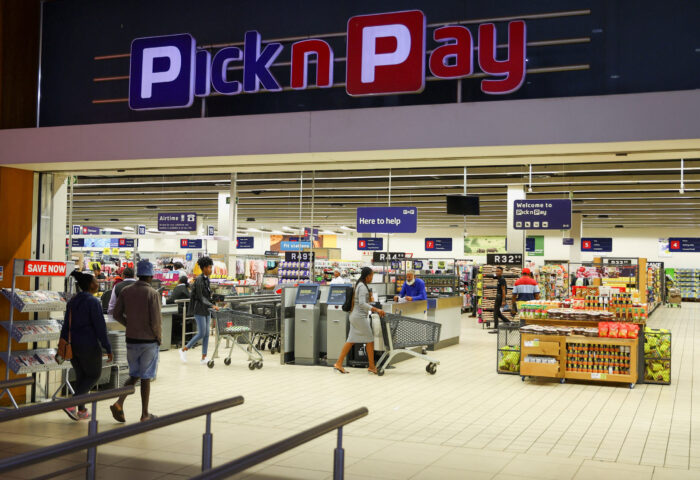In a significant development within the retail sector, South Africa’s prominent supermarket chain, Pick n Pay, has announced its decision to exit the Nigerian market. This strategic move comes after the company sold a 51% stake in its joint venture in Nigeria, marking the end of its operations in a market it initially entered with high hopes. The decision highlights the challenges faced by international retailers in the competitive Nigerian landscape, raising questions about the viability of foreign investments in the country.
Background of Pick n Pay’s Operations in Nigeria
Pick n Pay, founded in 1967 in Cape Town, has established itself as one of the leading grocery retailers in South Africa. The company entered the Nigerian market in 2016 through a partnership with the local firm, Attijariwafa Bank, intending to capitalize on Nigeria’s growing consumer market. With a population exceeding 200 million, Nigeria presents significant opportunities for retail growth, attracting various international players seeking to tap into the potential of this vibrant economy.
However, the reality of operating in Nigeria has proven to be more complex than anticipated. Pick n Pay faced numerous challenges, including fierce competition from local and international retailers, logistical difficulties, and a fluctuating economic environment. These obstacles ultimately led to a reassessment of the company’s strategy in the region.

Details of the Joint Venture and Exit Strategy
The sale of a 51% stake in the joint venture signals a strategic withdrawal from the Nigerian market. While Pick n Pay did not disclose the details of the buyer or the financial terms of the deal, the decision to divest reflects the company’s commitment to focus on its core markets in South Africa and other regions where it has established a strong foothold.
This exit strategy aligns with a broader trend among international retailers reassessing their presence in Nigeria. Economic instability, regulatory challenges, and infrastructure deficits have led several foreign companies to reconsider their investments, prompting some to withdraw entirely or scale back operations.
**Implications for the Retail Sector**
Pick n Pay’s exit from Nigeria raises important questions about the future of foreign retail investments in the country. The decision may have several implications for both the Nigerian retail landscape and the broader economy:
1. **Impact on Competition:** With the exit of a major international player, local retailers may find opportunities to strengthen their market positions. The absence of Pick n Pay could allow local grocery chains to capture market share and enhance their offerings to consumers.
2. **Investor Confidence:** The withdrawal of Pick n Pay may affect investor confidence in Nigeria’s retail sector. Potential foreign investors might view the exit as a cautionary tale, leading to increased scrutiny of the Nigerian market and its challenges.
3. **Market Opportunities for Local Retailers:** While international companies face hurdles, the exit of foreign retailers could create opportunities for local businesses to innovate and fill the gap left behind. Local firms may be able to tailor their offerings to better meet the preferences and needs of Nigerian consumers.
4. **Regulatory Environment:** The challenges faced by Pick n Pay underscore the need for improved regulatory frameworks and infrastructure development in Nigeria. Addressing these issues could enhance the business environment, making it more conducive for both local and foreign investors.
**Consumer Response and Market Dynamics**
The departure of Pick n Pay could also impact consumer choices in Nigeria. Many consumers were drawn to the brand for its quality products and service standards. Its exit may lead to a temporary disruption in the grocery retail landscape, as shoppers seek alternatives to meet their needs.
Local retailers must capitalize on this transition by enhancing their product offerings, improving customer service, and ensuring competitive pricing. Understanding the preferences of Nigerian consumers will be key to attracting former Pick n Pay customers and maintaining their loyalty.
**Conclusion**
Pick n Pay’s decision to exit Nigeria after selling a 51% stake in its joint venture marks a significant turning point in the country’s retail landscape. While the company initially entered the market with optimism, the challenges it faced ultimately led to a strategic withdrawal, highlighting the complexities of operating in Nigeria’s dynamic environment.
The implications of this exit extend beyond Pick n Pay, influencing competition, investor confidence, and consumer choices in the retail sector. As local retailers adapt to fill the void left by the departure of an international player, there remains potential for innovation and growth within Nigeria’s retail market.
Ultimately, the challenges encountered by Pick n Pay serve as a reminder of the need for continued improvements in Nigeria’s business climate. By addressing regulatory hurdles and investing in infrastructure, the country can create an environment that encourages foreign investment and fosters sustainable growth in the retail sector. The future of Nigeria’s retail landscape remains uncertain, but the opportunities for local players to thrive in a changing market are abundant.
Support InfoStride News' Credible Journalism: Only credible journalism can guarantee a fair, accountable and transparent society, including democracy and government. It involves a lot of efforts and money. We need your support. Click here to Donate
